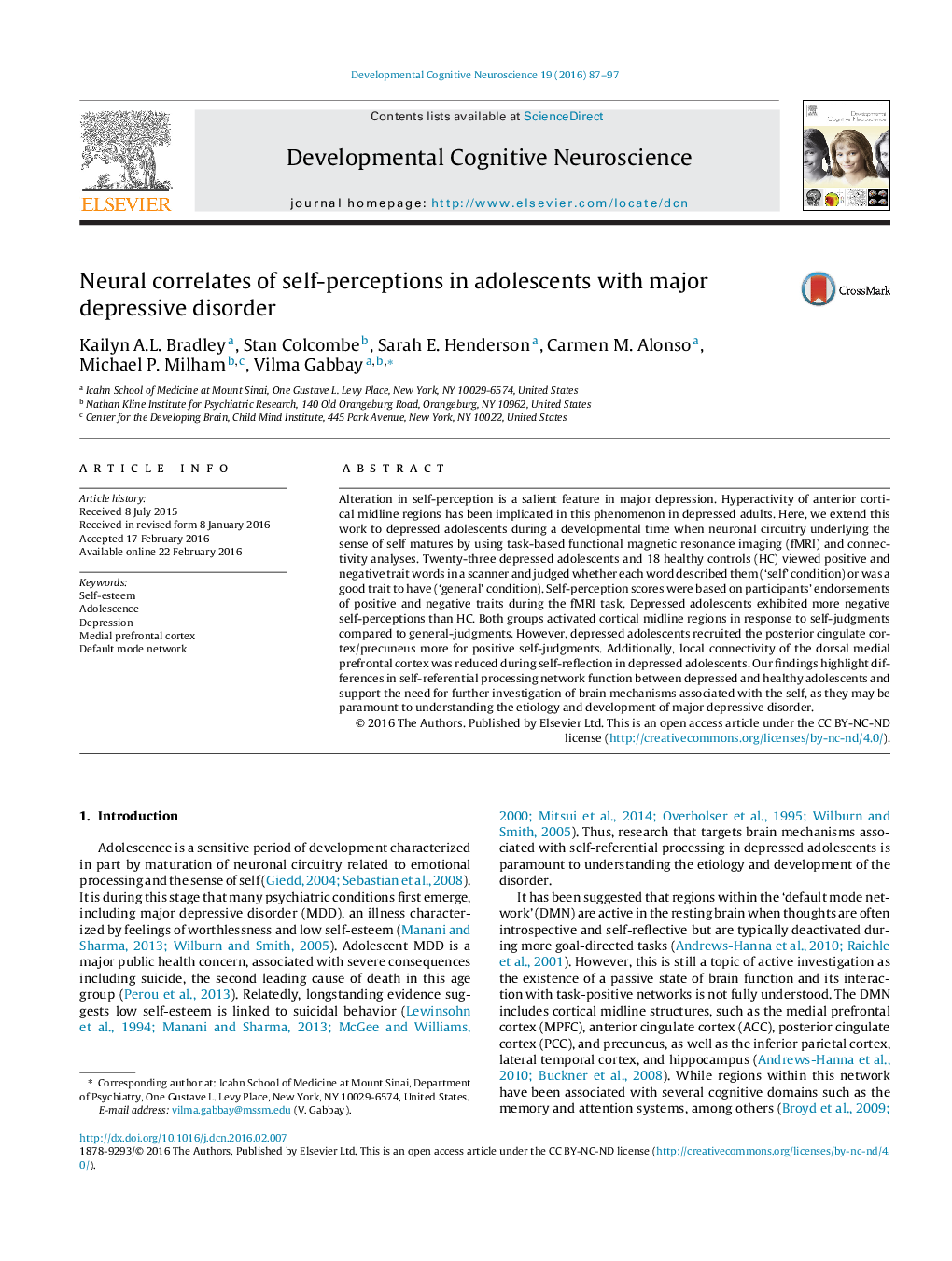| کد مقاله | کد نشریه | سال انتشار | مقاله انگلیسی | نسخه تمام متن |
|---|---|---|---|---|
| 4316438 | 1613104 | 2016 | 11 صفحه PDF | دانلود رایگان |
Alteration in self-perception is a salient feature in major depression. Hyperactivity of anterior cortical midline regions has been implicated in this phenomenon in depressed adults. Here, we extend this work to depressed adolescents during a developmental time when neuronal circuitry underlying the sense of self matures by using task-based functional magnetic resonance imaging (fMRI) and connectivity analyses. Twenty-three depressed adolescents and 18 healthy controls (HC) viewed positive and negative trait words in a scanner and judged whether each word described them (‘self’ condition) or was a good trait to have (‘general’ condition). Self-perception scores were based on participants’ endorsements of positive and negative traits during the fMRI task. Depressed adolescents exhibited more negative self-perceptions than HC. Both groups activated cortical midline regions in response to self-judgments compared to general-judgments. However, depressed adolescents recruited the posterior cingulate cortex/precuneus more for positive self-judgments. Additionally, local connectivity of the dorsal medial prefrontal cortex was reduced during self-reflection in depressed adolescents. Our findings highlight differences in self-referential processing network function between depressed and healthy adolescents and support the need for further investigation of brain mechanisms associated with the self, as they may be paramount to understanding the etiology and development of major depressive disorder.
Journal: Developmental Cognitive Neuroscience - Volume 19, June 2016, Pages 87–97
